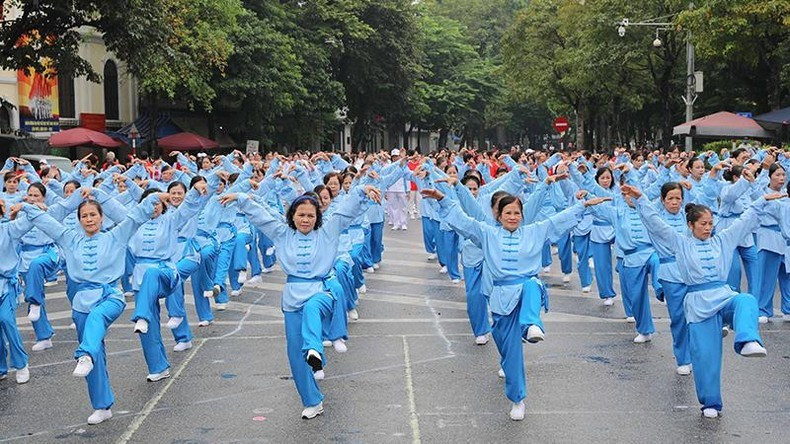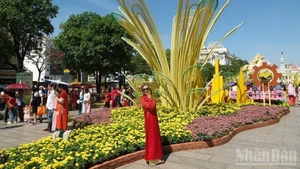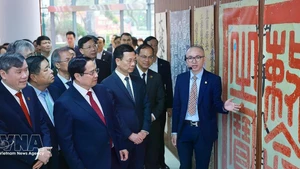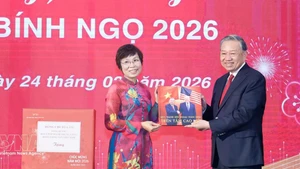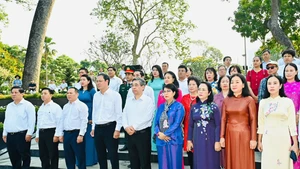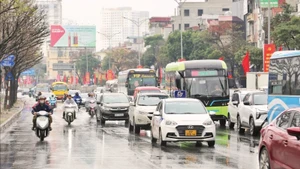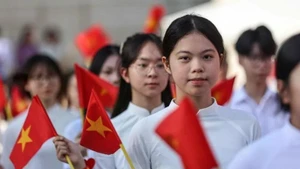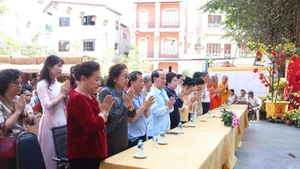According to the World Health Organisation (WHO), the elderly are people aged 70 years or older. Some countries (including Germany and the US) stipulate that the elderly are from 65 years of age or older. Vietnam regulates that the elderly are a full 60 years of age or older.
According to the United Nations Population Fund (UNFPA), a country will enter the “beginning of ageing” phase, when the elderly population makes up 10% of the total population and the “old age” phase when the elderly make up 20% of the total population.
Japan is a "super-old" country, with more than 30% of the population aged 60 or over. By 2050, there will be 64 super-aged countries. On average, 58 million people turn 60 years old each year, and two people turn 60 years old every second.
Vietnam is one of the countries with the fastest population ageing in the world. People aged 60 and over made up nearly 12% of the total population in 2019 and this figure will increase to more than 25% by 2050. Vietnam will enter a period of an ageing population, moving from an "ageing" society to an "old" society, by 2036.
Population ageing is one of the major issues in countries around the world. Improving the quality of life and increasing the average life expectancy is a mark of achievement during the development process. However, with the increase in life expectancy in the context that the replacement fertility rate is not sustainably maintained, the trend of rapid population ageing is inevitable.
Former United Nations Secretary-General Ban Ki-moon once said that the social and economic effects of population ageing are extremely important, affecting not only the elderly and their families but also the whole society and the global community, in unprecedented manners.
By April 1, 2021, Vietnam's population reached 98.2 million people, of which 12.5 million were aged 60 years or older (12.8%), 8.1 million people were aged 65 and over (8.3%) and nearly 2 million people were aged 80 years and over (2%).
The social and economic effects of population ageing are extremely important, affecting not only the elderly and their families but also the whole society and the global community, in unprecedented manners, said Former United Nations Secretary-General Ban Ki-moon.
During the 2009-2019 period, the population increased on average by 1.14% per year, while the elderly population rose by 4.35% per year, equivalent to 400,000 elderly people annually. However, during the 2019-2021 period, the number of elderly increased by an average of 600,000 per year.
The ageing index (the number of elderly people per 100 children under 15 years old) has increased rapidly since 2009 and the population ageing trend in Vietnam has been taking place rapidly.
In 2009, the ageing index was 35.5, while this index rose to 43.3 in 2014, 47.1 in 2015, 50.1 in 2016, 53.4 in 2017, 56.9 in 2018, 48.8 in 2019, 51.0 in 2020 and 53.1 in 2021.
According to the population database provided by the Ministry of Public Security, as of February 9, 2023, the whole country had 16,179,824 citizens aged 60 and over, accounting for nearly 17% of the population. In particular, 9,417,924 people aged 60 to under 70; 4,189,640 from 70 to under 80; 1,907,991 from 80 to under 90; 623,221 from 90 to under 100 and 41,048 from 100 years old and over. It is worth noting that the transition from population ageing to old population takes only 20 years, while the above-mentioned developed countries take hundreds of years.
Party General Secretary Nguyen Phu Trong delivered a speech at the meeting with delegates attending the 6th Congress of the Vietnam Elderly Association, noting that in the current new situation, the ageing process of the population in the country is taking place rapidly, with an increasing average life expectancy. The elderly population is more and more crowded, which is a great blessing for the nation.
Faced with the above fact, the Government should direct the development of policies and programmes to respond to the problem of population ageing, focusing on applying a life-cycle approach to the problem of population ageing and considering the elderly as a resource, based on respect for rights, not as a burden in the process of sustainable development.
The work related to the elderly is ensured based on three pillars including the protection care and promotion of the role of the elderly, it is necessary to strengthen the promotion of the role, position and contribution of the elderly, to the cause of national construction and defence.
Government should direct the development of policies and programmes to respond to the problem of population ageing, focusing on applying a life-cycle approach to the problem of population ageing and considering the elderly as a resource, based on respect for rights, not as a burden in the process of sustainable development.
It is crucial to develop a comprehensive system of care, including focused and community care, focusing on vulnerable groups such as ethnic minorities, people with disabilities and victims of domestic violence.
Appropriate policies are needed to create favourable conditions for the private sector to invest in providing care services, especially non-public nursing facilities, as well as applying digital technology in elderly care.
In her speech at the national online conference on outstanding elderly people and key officials at all levels of the Vietnam Elderly Association, Politburo member, permanent member of the Secretariat and Head of the Party Central Committee’s Commission for Organisation Truong Thi Mai said: “The elderly are an important political force and a resource for development. It is necessary to guarantee their rights and promote their role so that they can enjoy their old age in respect and social security”.
In the context of population ageing and the fourth industrial revolution, Vietnam should promptly complete policies and laws to concretise the Resolution of the 13th Party Congress: “Promoting intelligence, life experience, work and study of the elderly in society, community and family; continuing to build the model family: exemplary grandparents and parents, good children, harmonious husband and wife, united brothers and sisters; respecting, protecting and caring for the elderly; sponsoring and helping the elderly who are in difficulty, lonely and helpless”.
In the immediate future, it is essential to promulgate a national strategy for the elderly, contributing to building the elderly ecosystem in a new development trend.
